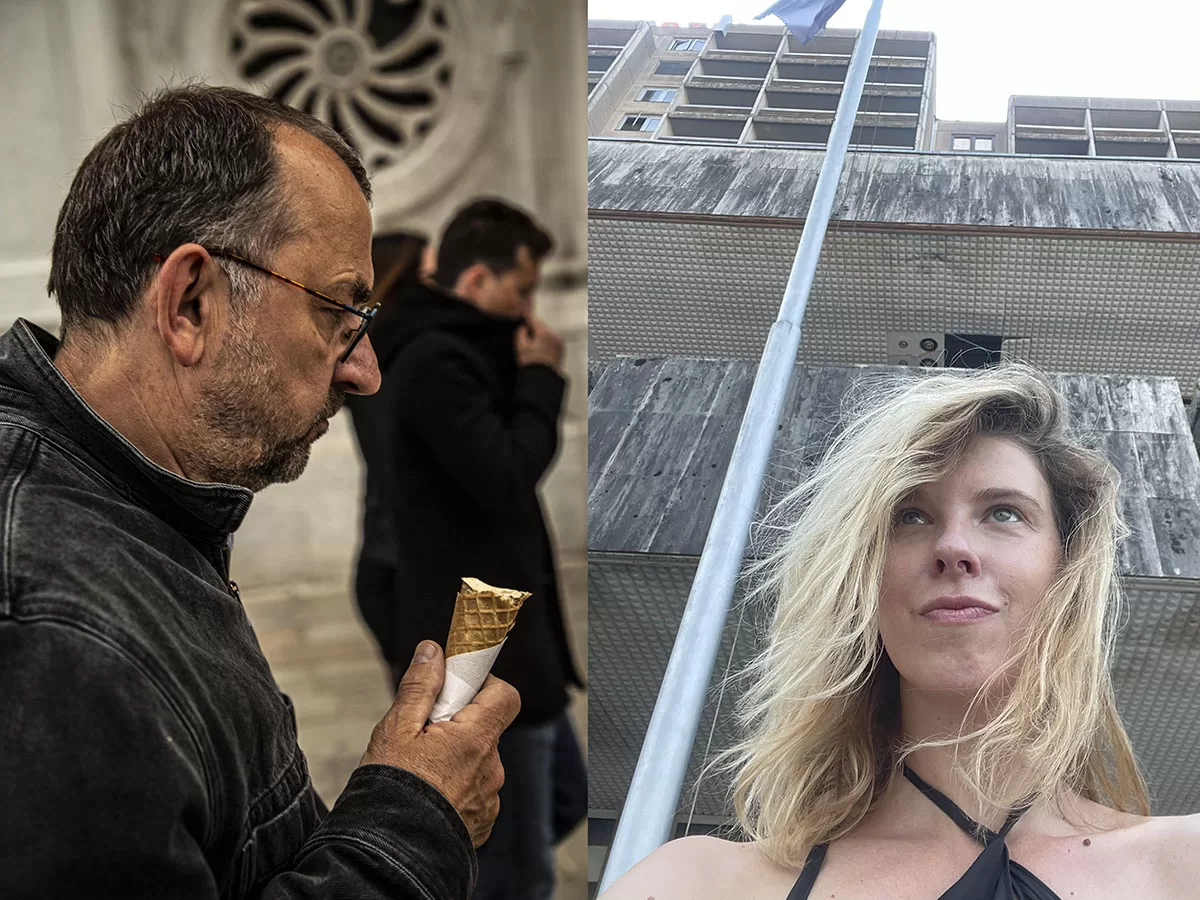3 May 2024 | Afghanistan, Burkina Faso, Burma, Ethiopia, Georgia, Hong Kong, News, Opinion, Ruth's blog
With the world absorbed in too much news some important stories in the world of freedom of expression can be lost. As we mark World Press Freedom Day it’s worth taking a moment to reflect on what is really happening around the world, away from the daily news agenda, from the ‘foreign agent’ bill in Georgia, to the restrictions being placed on journalists in Myanmar, Ethiopia, Hong Kong and of course Afghanistan.
It’s one of these unheard stories which I want to focus on this week. In the ongoing global struggle for press freedom, Burkina Faso finds itself embroiled in controversy once again. The recent suspension of foreign media outlets over their coverage of a damning report accusing the country’s army of civilian massacres underscores an appalling trend towards censorship and repression.
The report, released by Human Rights Watch (HRW), alleges that Burkina Faso’s military was responsible for the killing of 223 civilians in retaliation for their support of armed Islamists. This accusation has been vehemently denied by the military government, which seized power in a coup in 2022 with the promise of quelling the Islamist insurgency plaguing the nation.
But instead of choosing light and transparency the government has chosen the tool of the tyrant – censorship.
Foreign media outlets such as the BBC, Voice of America, and Deutsche Welle have been suspended, their websites blocked, and broadcasts halted for daring to report on HRW’s findings. This outrageous approach to silencing truth and dissent stifles the flow of information and undermines the fundamental principles of freedom of expression.
The joint statement from the governments of the United States and United Kingdom unequivocally condemns Burkina Faso’s actions, emphasising the importance of an unfettered press in fostering informed public discourse. As we mark World Press Freedom Day, these acts of censorship serve as a stark reminder of the critical role that media plays in holding power to account and safeguarding democracy.
The suspensions imposed by Burkina Faso’s Superior Council of Communication not only violate the rights of journalists but also deprive the Burkinabe people of access to independent and accurate news. By blocking HRW’s website and restricting media coverage of their report, the government effectively shields itself from scrutiny and accountability.
Such tactics are not unique to Burkina Faso; they are part of a broader global trend towards authoritarianism and censorship. Across the world, journalists face intimidation, harassment, and violence simply for doing their jobs. This week, the BBC World Service has revealed for the first time that 310 of its journalists are living in exile.
The international community must stand in solidarity with journalists and media organisations under attack. Advocating for freedom of expression is not only a matter of principle but also a practical necessity for the functioning of democratic societies. When the voices of the oppressed are silenced, tyranny reigns unchecked.
As the world marks World Press Freedom Day, let us reaffirm our commitment to defending the rights of journalists everywhere. In the face of adversity, their courage and resilience serve as a beacon of hope for a brighter and more just future.
17 Oct 2023 | News
More than two years ago, as Myanmar’s coup unfolded, open-source content provided unique insight into what was happening in the country and the battlelines that were soon to emerge. Live from a roundabout in the capital of Naypyidaw, exercise instructor Khing Hnin Wai unwittingly captured and disseminated live footage of the coup taking place via Facebook. For a brief period, images of Khing Hnin Wai dancing in front of a military convoy became symbolic of Myanmar’s struggle to maintain democracy.
Here at Myanmar Witness, we use user-generated, openly available content like this to identify, verify and report on events across Myanmar involving abuses of human rights and contraventions of international law. We let the evidence speak for itself when we publish the results of our investigations, collaborate with media and share evidence with justice and accountability mechanisms.
Content we examine is rarely as innocuous as Khing Hnin Wai‘s video. Since our inception as one of the witness projects at the Centre for Information Resilience, we have used imagery from social media, geospatial providers, and other forms of ‘open’ sources to contribute towards accountability for crimes being committed. These include horrific beheadings, the widespread intentional use of fire, the impact of the conflict on sites with special protections, and at a scale and sophistication beyond what we see in our other witness projects — hate speech and doxxing.
Doxxing exposes the private information of individuals, such as addresses, phone numbers and more, without their consent. In Myanmar it is done with the intent to intimidate, spread fear and suppress voices. Doxxing has become the digital manifestation of the real-world violence faced by thousands of people in Myanmar everyday. Our findings have repeatedly shown that in Myanmar, the internet is being used as a weapon – and this is steeped in history. Facebook was widely used as a vehicle for the promotion of hate speech and incitement to violence during the Rohingya crisis, which led to the social media company admitting failings in the way it handled content on its platform.
In January this year, following an investigation into online abuse against Burmese women, we released our Digital Battlegrounds report, which showed how the situation is worsening. Its findings were damning: Facebook and Telegram were hosting politically-motivated abuse targeted at Burmese women. Abuse included real-world threats of violence, gendered hate speech and sexually violent commentary. The source of this content was clear – pro-Myanmar Military accounts and users.
To their credit, and in response to Myanmar Witness and BBC outreach, both Meta and Telegram removed a large amount of content which violated their respective terms of service. However, in the case of Telegram, soon after some accounts were removed or suspended, new ones emerged to take their place. Identifying online abusers and their violent content continues to be painstaking and tedious work.
The online information environment in Myanmar has been, and continues to be, part of the conflict. In the wake of an airstrike by the Myanmar Air Force against Pa Zi Gyi village in April 2023, the darkness of Myanmar’s digital conflict resurfaced. With some media reporting more than 160 dead it was one of the worst airstrikes seen in Myanmar and led to an outpouring of domestic and international sympathy and condemnation.
In Myanmar, a ‘black profile’ campaign emerged online, mourning the victims of the attack. Today’s report by Myanmar Witness investigators shows just how the military regime retaliated with a brutal crackdown — online and offline — against those who dared to show sympathy. For engaging in non-violent online protest, individuals were met with arrests, threats and physical violence. Both their digital and real-world voices were silenced.
Pro-junta groups doxxed those who protested digitally as online sympathy grew in the wake of the airstrike. We found a link: at least 11 of the 20 individuals who were doxxed were then arrested for their activities on Facebook within days of being exposed by pro-junta Telegram channels. They were among a total of 69 people who were arrested within three weeks of the airstrike. In the vast majority of cases, social media activity was the stated reason for their arrest by the authorities.
Some months following their arrest, five individuals who were influential and well-known — a former journalist and several celebrities — were released. Multiple pro-junta Telegram channels hinted at their release before it occurred, indicating information sharing, if not coordination, between these channels and the military authorities. The fate of the more than 60 others detained in the same period remains unclear. Our research only scratches the surface of the vicious digital and physical conflict in Myanmar, and there are no signs of it abating.
While those who incite and intimidate online are ultimately responsible, inadequate moderation of content by social media platforms is part of the problem, as is the protracted war in Myanmar which recycles and reinforces the online violence. While others go online to perpetuate conflict, we at Myanmar Witness will continue to use digital content to identify, verify and report on the conflict, and to ensure that those at risk of being silenced have their voices heard.
22 Sep 2023 | Afghanistan, Awards, Burma, China, Fellowship 2023, India, Iran, News, Opinion, Russia, Ruth's blog, Somalia, Ukraine
For the last 22 years Index on Censorship has been proud to host the annual Freedom of Expression Awards. It’s an opportunity to celebrate the brave artists, journalists and campaigners from around the world who fight for freedom of expression in the most challenging of circumstances. There are some truly incredible nominees for the awards this year, who more than ever, are challenging the repressive regimes they live under to fight for the rights of ordinary people.
2023 has seen the continuation of Russia’s war on Ukraine with its horrific consequences for the people of Ukraine and the severe repression for those speaking out against the war in Russia. The CCP in China continues to repress journalists, particularly those who attempt to uncover the crimes against the Uyghur people, and activists and protesters for women’s rights in Iran and Afghanistan face vicious attacks from the authorities.
The shortlisted candidates for the Arts award are Visual Rebellion, a platform for sharing the work of photographers, filmmakers, and artists documenting the protests in Myanmar; Iranian rapper Toomaj Salehi, who sings about injustice and the abuse of civil society by the authorities, for which he has been imprisoned; and Ukrainians, curator Maria Lanko and artist Pavlo Makov, who have worked to protect Ukrainian art in the face of Russian war crimes.
The shortlisted candidates for the Campaigning award are Matiullah Wesa from Afghanistan who has worked to ensure all children, but especially girls, have access to education and educational materials; Russian student Olesya Krivtsova who has publicly opposed Russia’s war on Ukraine and has fled the country to avoid up to 10 years’ imprisonment; the Xinjiang Victim’s Database, which records the incarceration and persecution of the Uyghur population in Xinjiang province; and the Africa Human Rights Network which works to support and protect human rights defenders across the Great Lakes region of Africa.
And the shortlisted candidates for the Journalism award are Bilan Media, Somalia’s first women-only media organisation and newsroom; Mohammed Zubair, co-founder of the Indian fact-checking platform Alt News which has led to threats after challenging misinformation; and Afghan Mortaza Behboudi, in exile in France, who continues to travel to Afghanistan every month to work with different media outlets to ensure the voices of Afghans are heard.
The Freedom of Expression Awards are a time to remind ourselves of the importance of freedom of expression and to commit ourselves to protecting our own freedom of expression. It is easily lost but hard fought for. We must not forget that.
18 Sep 2023 | Awards, Burma, Fellowship 2023, Iran, Russia, Ukraine
 Visual Rebellion (Myanmar)
Visual Rebellion (Myanmar)
Visual Rebellion was established in December 2021 as a platform to showcase and support the edited work of journalists, filmmakers and artists across post-coup Myanmar.
Launched on International Human Rights day on 1 December 2021 by a team led by Nadja Houben (Human Rights in the Picture foundation) and Laure Siegel (Mediapart), Visual Rebellion is a platform to showcase and support the edited work of journalists, filmmakers and artists across post-coup Myanmar. The activities of Visual Rebellion consist mainly of a free public information service on what is happening in Myanmar and in Thailand, continuing education for their members in English, Thai and Burmese language on a range of topics including cybersecurity, investigations, photojournalism, as well as coordinating the production of photo exhibitions, documentary screenings and book publications to finance their studies or visas.
 Toomaj Salehi (Iran)
Toomaj Salehi (Iran)
Toomaj Salehi is an Iranian rapper who has been singing about injustice and abuses by the Iranian authorities against civil society. In 2022, during the ongoing protests, he was arrested and charged for his work.
Salehi is a well-known Iranian hip-hop artist who has released protest songs including Mousehole, Turkmenchay and Pomegranate. Many of his songs explicitly reference the human rights situation in Iran, as well as threats to civil society. This has led him to being targeted by the authorities, long before his recent detention.
Following the release of Mousehole, Toomaj was arrested in the middle of the night on 12 September 2021. He was charged with "spreading propaganda against the state," but after more than a week he was released on bail. In January 2022, he was sentenced to six months in prison but was released on a suspended sentence in February. He later appeared in front of the prison where he had been imprisoned as part of a music video for a song written in memory of the victims of Aban.
Due to Toomaj’s support of the the protests that erupted after the killing of Mahsa Amini while in custody, he was violently taken into custody on 30 October 2022. In November, Iran's judiciary charged Salehi with a number of crimes, including spreading "corruption on Earth," a charge that could see him sentenced to death, as well as charges that each carry 1-10 years of imprisonment: “propaganda against the state,” “formation and management of illegal groups with the aim of undermining national security,” “collaboration with hostile governments,” and “spreading lies and inciting violence through cyberspace and encouraging individuals to commit violent acts.” While in detention, state media published a video purporting to show Salehi blindfolded, with bruising on his face, apologising for his words. Family members and human rights organisations have accused the authorities of torturing Salehi in prison to force him to make a false confession.
In July 2023, Toomaj was sentenced to over 6 years in prison for “corruption on earth”, as well as being banned from leaving Iran for 2 years. He is also banned from preparing, singing and producing music for 2 years. It has also been reported that he has been acquitted of two other charges - “insulting the supreme leader” & “communicating with hostile governments”.
Maria Lanko and Pavlo Makov (Ukraine)

In the midst of Russia’s unlawful invasion of Ukraine, the artist and curator worked to secure and transport Ukrainian art out of the warzone to ensure it could be protected and presented as part of the Venice Biennale.
Maria Lanko (right) was a co-curator of Kyiv-based gallery, The Naked Room, who was selected to co-curate the Ukrainian national pavilion at the 2022 Venice Biennale. The piece selected to represent Ukraine was entitled ”Fountain of Exhaustion” by artist Pavlo Makov (left), which is a kinetic sculpture consisting of 78 bronze funnels, arranged in the form of a pyramid. The water poured into the top funnel divides into two streams, feeding the funnels below. “Only a few drops reach the bottom, symbolizing exhaustion on a personal and global level,” the curators said in a press release.
On the evening of 24 February 2022, the day that Russia invaded Ukraine, Lanko packed the installation into her car and she drove, heading for Venice. The journey took three weeks, after taking a week just to make it to the border between Ukraine and Romania. Due to Maria’s decision, the piece was able to be presented at the Biennale to enable Ukrainian art to be seen in this unique and important showcase of international art. The importance of this was highlighted by Lanko in an interview with Deutsche Welle: “When the sheer right to existence for our culture is being challenged by Russia, it is crucial to demonstrate our achievements to the world".

 Visual Rebellion (Myanmar)
Visual Rebellion (Myanmar) Toomaj Salehi (Iran)
Toomaj Salehi (Iran)